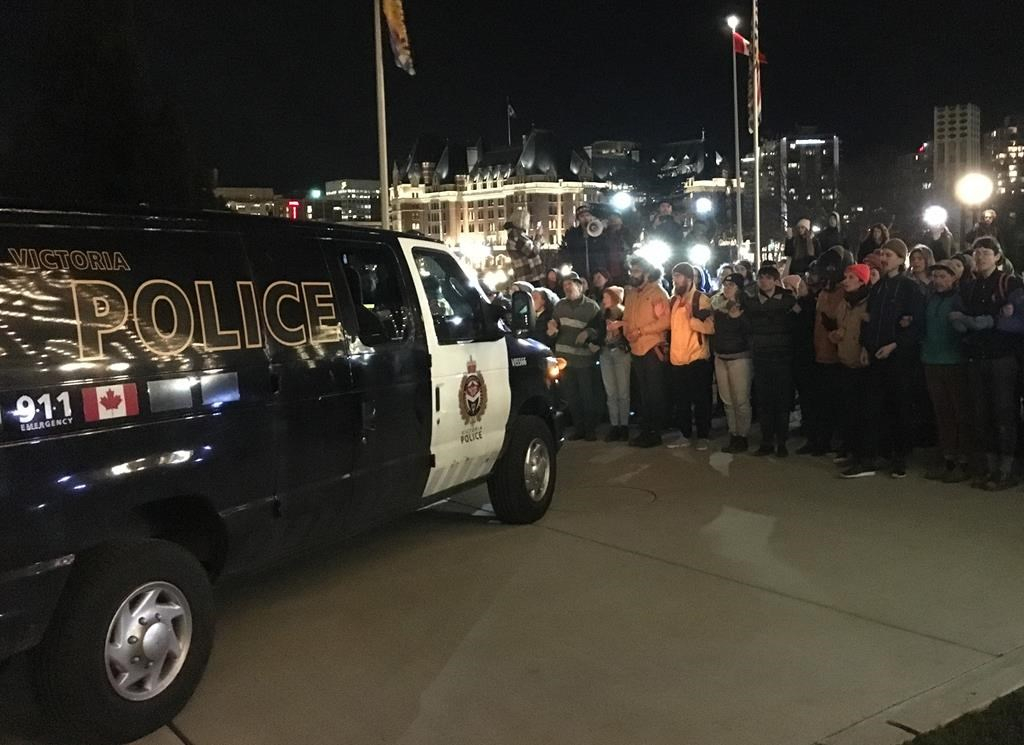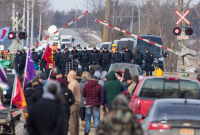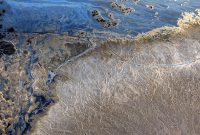Wet'suwet'en supporters take protest back to B.C. legislature

Supporters of Wet'suwet'en hereditary chiefs and their bid to stop a pipeline across their traditional territories returned to the British Columbia legislature Monday night despite a court injunction prohibiting protests blocking entrances to the building.
About 300 people were gathered at the front steps, with many crowding at the building's ceremonial gates used by dignitaries including the lieutenant-governor and members of the Royal Family.
Police were also on the steps standing next to the supporters, but there were no reports of arrests.
"We are not here seeking arrest," said Indigenous youth leader Ta'Kiaya Blaney, speaking with a megaphone. "We are here as our duty as Indigenous youth. Bring your blankets, it's going to be a long night."
At about 7 p.m., the supporters blocked the progress of a police van that arrived at the legislature. They linked arms and chanted, "peaceful and with love, unarmed and non-violent."
Several police officers got out of the van without incident.
The group placed a carved ceremonial mask on the ceremonial gates, saying it would look after them during their gathering. A fire they said was sacred was lit in a steel pit that was placed at the top of the legislature stairs.
The legislature was the scene of widespread protests on Feb. 11 that prompted the Speaker to obtain an injunction when entrances to the building were blocked.
Indigenous youth leader Saul Brown told the protest their cause is worthy despite the court injunction.
"We're asking you to stand with us shoulder to shoulder," he said. "You are on the right side of history."
While the demonstrators gathered at the legislature, others blocked a road leading to the Port of Vancouver, as well as tracks carrying a Lower Mainland commuter train and a rail line outside New Hazelton.
The moves came after police arrested 10 people and dismantled a rail blockade on the Tyendinaga Mohawk Territory in eastern Ontario, stoking tensions in the dispute even as it paved the way for train service to resume.
The blockade had been set up in support of the hereditary chiefs of the Wet'suwet'en Nation, who oppose the development of the Coastal GasLink natural gas pipeline project that crosses their traditional territory in northwestern British Columbia. The pipeline, however, has the support of elected band councils along the pipeline route.
The Wet'suwet'en house chiefs set three conditions last week for meeting with federal leaders but a spokesman for the chiefs said Monday they haven't been met.
The chiefs have called for the removal of an RCMP mobile unit, the end of foot patrols and the removal of Coastal GasLink workers from their traditional territory as conditions for meeting with the federal government.
This report by The Canadian Press was first published don February 24, 2020.





Comments